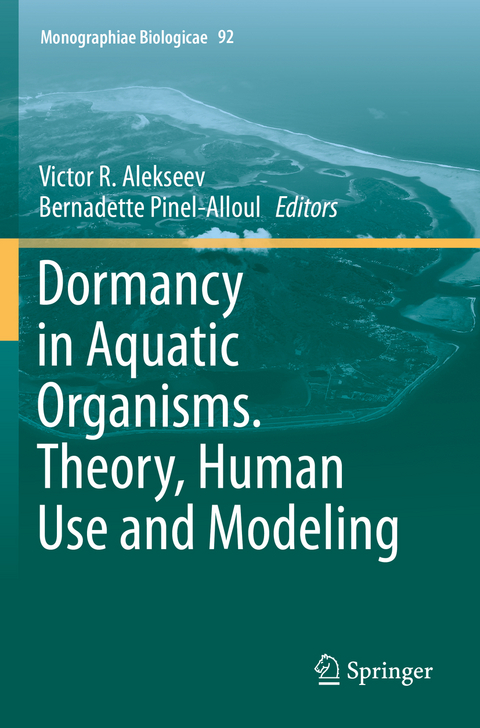
Dormancy in Aquatic Organisms. Theory, Human Use and Modeling
Springer International Publishing (Verlag)
978-3-030-21215-5 (ISBN)
This is the second volume on dormancy in aquatic organisms. The book is divided into three parts whereby the first part is devoted to several groups of aquatic organisms which are under-studied in terms of the dormancy's role in the life cycle. The second part looks at the use of dormancy phenomena in science and potential human applications. Furthermore, part 3 comprises of examples of using modeling in relation to dormancy phenomenon and it opens with a theoretical analysis of studies of biological information, including seasonal information. This work can be used as a text book for students as well as a manual for science and practice purposes in ecology, aquaculture, nature protection and space researches with regards to creating ecological life supporting systems and discovering extraterrestrial life on other planets with harsh environmental conditions.
lt;b>Prof. Victor Alekseev, Zoological Institute, Russian Academy of Sciences, St. Petersburg, Russia
Prof. Bernadette Pinel-Alloul, Montreal University, Department of Biological Sciences, Montréal, Canada
PART I: Strategies and mechanisms of diapause in aquatic invertebrates.- 1. Professor Oscar Ravera: long life in science.- 2. Introduction to dormancy in aquatic invertebrates: mechanism of induction and termination, hormonal and molecular-genetic basis.- 3. Dormancy in freshwater tardigrades.- 4. Fish: diapause, dormancy, aestivation, and delay in gonad development.- 5. Cysts and resting eggs from marine zooplankton. Dimension of the phenomenon, physiology of rest, ecological and biogeographic implications.- PART II: The role of diapause in science and human uses.- 6. Studying on dormancy in space conditions.- 7. Resistance of dormant eggs of cladocera to anthropogenic pollutants.- 8. Mechanisms facilitating dispersal of dormant eggs in a planktonic crustacean.- 9. Seasonal diphenism in daphnia from temperate environments: Organismal traits and molecular regulation.- 10. The role of chemical interactions in embryonic diapause induction in zooplankton.- 11. Aquatic invertebrate dormancy and medicine.- PART III: Dormancy, biological information and modelling.- 12. Biological information and dormancy in aquatic population modeling.- 13. Biological information, dormancy and individual based modeling of daphnia population dynamics.- 14. The role of biotic and abiotic interactions in summer diapause in cyclopoids: Conceptual model and field validation in southern Quebec boreal lakes.- 15. The model of dynamics of population number of the plankton.- 16. Use of simulation to analyze parasite impacts on Volga delta Brachionus calyciflorus pallas rotifer dynamics: Abundance, reproduction and transition to diapause.
| Erscheinungsdatum | 13.10.2020 |
|---|---|
| Reihe/Serie | Monographiae Biologicae |
| Zusatzinfo | XVI, 274 p. 51 illus., 30 illus. in color. |
| Verlagsort | Cham |
| Sprache | englisch |
| Maße | 155 x 235 mm |
| Gewicht | 499 g |
| Themenwelt | Naturwissenschaften ► Biologie ► Evolution |
| Naturwissenschaften ► Biologie ► Limnologie / Meeresbiologie | |
| Naturwissenschaften ► Biologie ► Ökologie / Naturschutz | |
| Schlagworte | Aquatic invertebrates • Aquatic Organisms • Cladocera • crustacea • Daphnia • Diapause • Dormancy in aquaculture • Dormancy in space • Egg bank formation • Model invertebrates • Rotifers |
| ISBN-10 | 3-030-21215-7 / 3030212157 |
| ISBN-13 | 978-3-030-21215-5 / 9783030212155 |
| Zustand | Neuware |
| Haben Sie eine Frage zum Produkt? |
aus dem Bereich


